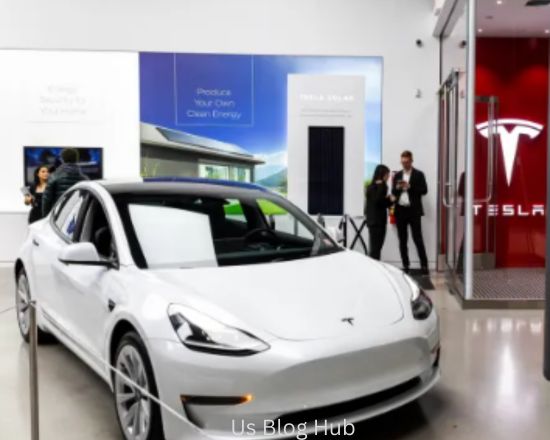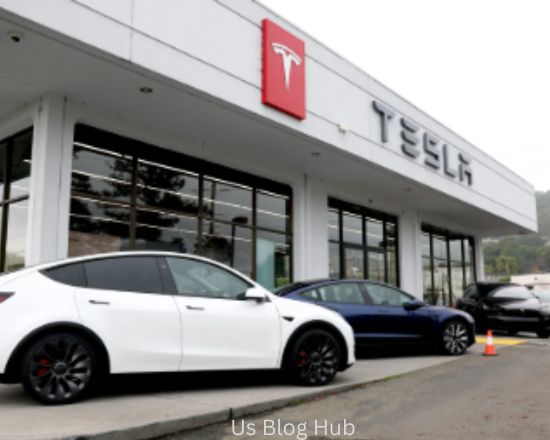Entrepreneurship Important for Innovation because it brings new ideas to life. Entrepreneurs solve problems, improve technology, and create better products and services. The Global Entrepreneurship Monitor (GEM) tracks entrepreneurship trends in 120+ countries, conducting 170,000+ interviews yearly to analyze innovation and economic impact. Entrepreneurs help industries grow by bringing new ideas and better technology. Without them, businesses would stop improving. Small startups introduce fresh solutions, while big companies like Tesla bring big changes. They create jobs, strengthen the economy, and make life easier with new and better products.
Understanding Entrepreneurship Important for Innovation
Entrepreneurship is important for innovation because it transforms new ideas into practical solutions that address real-world challenges. Apple revolutionized tech with the iPhone (2007), reshaping communication. By 2024, Apple’s revenue hit $391.04B, with 48.69% from iPhone sales. (study Backlinko)
Apple also invested $30B in R&D (2024) to drive innovation. (Study Maestra) This commitment advances technology, proving entrepreneurship (networks) powers innovation.
The Global Entrepreneurship Monitor (GEM) tracks entrepreneurship trends in over 120 countries, providing valuable insights into how entrepreneurial activities drive economic and technological growth. In the United States, the 2022–2023 GEM report revealed that entrepreneurial activity reached record highs, with rates increasing by 18% for women and 20% for men.
How Entrepreneurs Drive Innovation

Entrepreneurs play a crucial role in driving innovation by introducing new ideas, improving technology, and solving real-world problems. They identify gaps in the market and develop creative solutions that push industries forward. Here’s how they make it happen:
1. Turning Ideas into Reality
Turning Ideas into Reality means transforming creative concepts into real solutions. Elon Musk did this with Tesla, revolutionizing electric cars, and SpaceX, making space travel more efficient. (Technology Helps Small)Entrepreneurs identify problems, create solutions, and drive innovation, shaping industries and improving lives.
2. Creating New Products & Services

Creating new products and services means developing innovative solutions that improve or replace traditional options. Startups challenge old industries by offering better, faster, and more affordable alternatives.
For example, Uber disrupted transportation by connecting riders with drivers through an app, replacing traditional taxis. As of 2023,(Study Statista) Uber had 130 million monthly active users and completed 7.6 billion trips annually. Similarly, Airbnb transformed hospitality, enabling people to rent homes instead of hotels. The company now has over 7 million listings worldwide and has hosted over 1.5 billion guests.
3. Improving Technology

This statement highlights how entrepreneurs(Dream) drive technological progress by investing in research and development (R&D). R&D involves spending money and resources to improve existing technology or create innovations.
For example, Apple invests over $30 billion annually in R&D to develop cutting-edge products like the iPhone, AI-powered devices, and advanced software. This continuous investment leads to better performance, new features, and improved user experiences, keeping Apple ahead in the tech industry.
4. Boosting Economic Growth
This statement explains how new businesses contribute to economic growth. It highlights that when new businesses emerge, they create jobs, attract investment, and increase competition, leading to better products and services for consumers.
It specifically mentions that entrepreneurial activity in the U.S. reached a record high in 2024, with young adults leading the way in starting new businesses. This indicates that younger generations are becoming more involved in entrepreneurship, which is a positive sign for the economy.
Examples of Entrepreneurial Innovation
Entrepreneurial innovation is about creating groundbreaking solutions that transform industries. Elon Musk redefined transportation with Tesla and SpaceX, Steve Jobs revolutionized mobile technology with the iPhone, and Jeff Bezos reshaped e-commerce with Amazon. On a smaller scale, local entrepreneurs drive innovation by solving everyday problems and boosting economic growth. Whether global or local, innovation fuels progress and shapes the future.
| Entrepreneur | Innovation Example | Impact (Stats & Figures) |
| Elon Musk (Tesla, SpaceX) | Electric vehicles, private space travel | Tesla: In 2024, Tesla experienced a 6% decline in automotive revenues, totaling $77 billion.(Study arstechnica.com)SpaceX: Estimated revenue of $13.1 billion in 2024, with $4.2 billion from launch services and $8.2 billion from Starlink.(Study payloadspace.com) |
| Steve Jobs (Apple) | iPhone, App Store, digital media revolution | Apple: As of 2024, Apple has sold over 2.2 billion iPhones since its launch in 2007.(Study notateslaapp.com) |
| Jeff Bezos (Amazon) | E-commerce, cloud computing (AWS), logistics | Amazon: In 2024, Amazon’s revenue reached $524.9 billion.(Study payloadspace.com) |
| Sara Blakely (Spanx) | Reinvented shapewear & women’s fashion | Spanx: Built into a $1.2 billion brand without external investment.(Study ir.tesla.com) |
| Reed Hastings (Netflix) | Online streaming & content distribution | Netflix: Reached 260 million subscribers in 2023.(Study arstechnica.com) |
| Local Small Businesses | Community-driven products, localized tech solutions | U.S. Small Businesses: Contribute 44% to GDP and create 66% of new jobs.(Study ir.tesla.com) |
The Economic and Social Impact of Entrepreneurial Innovation
Economic Impact
Entrepreneurial innovation in the U.S. creates jobs and drives economic growth. Small businesses are expected to generate over 60% of new jobs in 2025, according to the SBA. Companies like Tesla and Amazon are leading this change, contributing to significant GDP growth.
Tech innovations, especially in AI, are projected to add over $2 trillion to the economy. In 2025, venture capitalists predict increased investment in AI and tech startups, with $236 billion invested in 2022. In short, innovation fuels job creation, boosts productivity, and strengthens the economy.
Social Impact

Entrepreneurial innovation creates jobs and addresses societal challenges. For example, Tesla has helped reduce pollution by promoting electric vehicles and clean energy. Their innovations not only address environmental concerns but also create green jobs, driving economic and social progress.
Similarly, Patagonia has influenced social change by promoting sustainable business practices, using eco-friendly materials, and encouraging responsible consumption.
U.S. Small Business Administration (SBA) reports that small businesses, like Tesla and Patagonia, account for 44% of U.S. economic activity.
Challenges Entrepreneurs Face in Innovation
Entrepreneurs often struggle with several challenges when turning new ideas into reality. Here are some common obstacles, with real-world examples.
1. Limited Funding

Many new businesses struggle to get money because investors don’t want to risk funding ideas that aren’t proven yet. Banks also ask for assets (like property or equipment) as security, which most startups don’t have. Without enough cash, it becomes hard for businesses to create products, promote them, and run daily operations—making it tough to compete with big, well-known companies.
Example: Warby Parker, a startup that sells glasses, had trouble getting money in the beginning. Instead of spending a lot in stores, they sold glasses online, which saved costs and made them more affordable. They also introduced a Home Try-On program, where customers could order glasses, try them at home, and return the ones they didn’t want. This built trust and helped them grow without needing expensive stores.
2. Strong Market Competition

New startups often struggle to compete with big, established companies that have strong brand recognition and large marketing budgets. Breaking into the market requires innovation and smart strategies.
For example, Bonobos, a men’s clothing startup founded in 2007, faced tough competition from major retailers. To stand out, they introduced “Guideshops,” physical locations where customers could try on clothing before making a purchase, providing a tactile experience that online shopping lacks. This unique approach helped them compete and eventually led to Walmart acquiring the brand in 2017. (Study corporate.walmart)
3. Government Regulations and Legal Barriers
Entrepreneurs often face challenges due to complex government regulations, hindering innovation and increasing operational costs.
For example, in the United States, the cryptocurrency startups Airfox and Paragon were fined $250,000 each by the Securities and Exchange Commission (SEC) for conducting unregistered Initial Coin Offerings (ICOs). These fines highlight the importance of startups understanding and complying with existing financial regulations to avoid legal repercussions. (Study techcrunch)
Additionally, the U.S. Chamber of Commerce has noted that overreaching regulations can strain American businesses’ workforce, time, productivity, and budgets, stifling economic growth and wages across the country.
How to Foster Entrepreneurial Innovation
Entrepreneurial( networks) innovation is about turning creative ideas into practical solutions that drive business growth. To foster it, businesses and individuals should focus on problem-solving, embrace technology, and create a culture that encourages risk-taking and experimentation.
Real-world examples include Elon Musk’s Tesla, which disrupted the auto industry by pushing electric vehicles, and Airbnb, which transformed the hospitality sector by leveraging the sharing economy. Practical steps include investing in R&D, collaborating with industry experts, and continuously analyzing market trends. According to a Harvard Business Review study, companies that prioritize innovation see 2.5 times higher revenue growth than those that don’t.
Final Thought
Entrepreneurship drives innovation by turning new ideas into real products and services that make life better. From small startups to big companies like Apple and Tesla, entrepreneurs bring fresh technology, create jobs, and grow the economy. Even though they face challenges like money and competition, they keep pushing forward by solving problems, taking risks, and investing in new ideas. When we support entrepreneurs, we support progress and a future full of exciting innovations.
